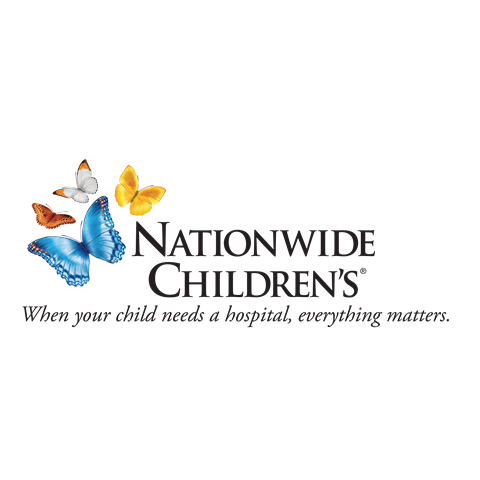Available Technologies
# of Displayed Technologies: 6 / 6
Applied Category Filter (Click To Remove): Diseases and Disorders
Categories
 Delivery of Adenosine Deaminase to Cancer Cells, Immune Cells and the Tumor Microenvironment
Delivery of Adenosine Deaminase to Cancer Cells, Immune Cells and the Tumor Microenvironment
TS-000973 — A recombinant oncolytic virus encoding either an adenosine deaminase or heterologous proteins can be used in treatment of a variety of diseases, as the primary purpose of these are to maintain and develop the immune system. A team of researchers at Nationwide Children’s Hospital have found a method that can address the delivery of adenosine deaminase into cancer cells, immune cells and the tumor microenvironment to aid in treatment for any disease or condition associated with adenosine or other associated markers.
- College:
- Inventors: Wang, Ruoning
- Licensing Officer: Zalucha, Ellen
 Live Attenuated Mumps Virus-Based SARS-CoV-2 Vaccines for Infants and Children
Live Attenuated Mumps Virus-Based SARS-CoV-2 Vaccines for Infants and Children
TS-000971 — The novel disease Coronavirus, also denoted as COVID-19, was recognized by the World Health Organization as an unknown etiology in December of 2019. Severe Acute Respiratory Syndrome (SARS) is a disease that presents flu-like symptoms that is caused by coronavirus (SARS-CoV). The current pandemic of severe acute respiratory syndrome coronavirus 2 (SARS-CoV-2) is causing tremendous economical, emotional, and public health burdens. A team of researchers at Nationwide Children’s Hospital have reengineered a live attenuated recombinant mumps virus to create a novel SARS-CoV-2 vaccine for infants and children under the age of twelve. As vaccination is the most effective strategy to prevent infectious diseases, this development is instrumental to the outcome of the COVID-19 pandemic.
- College:
- Inventors: Peeples, Mark; KC, Mahesh
- Licensing Officer: Zalucha, Ellen
.png) Vaccines and Methods of Making and Using Vaccines for Prevention of Respiratory Scynytial Virus (RSV) Infections
Vaccines and Methods of Making and Using Vaccines for Prevention of Respiratory Scynytial Virus (RSV) Infections
TS-000372 — Respiratory syncytial virus (RSV) is the most frequent cause of lower respiratory disease and hospitalization in infants, but there is currently no vaccine available to prevent or treat RSV disease. Researchers at Nationwide Children’s Hospital and The Ohio State University have developed a novel method for designing RSV vaccines using a Vesicular Stomatitis Virus (VSV) vector. VSV is attenuated in humans, so it can infect people and express inserted genes without causing disease. Additionally, VSV grows to high titers in culture, allowing for efficient vaccine production.
- College:
- Inventors: Peeples, Mark
- Licensing Officer: Zalucha, Ellen
.png) Novel VSV-Based Vaccine Platform for Zika Virus
Novel VSV-Based Vaccine Platform for Zika Virus
TS-000329 — There is currently no vaccine available for protecting against Zika virus (ZIKV) infection and disease. Researchers at Nationwide Children’s Hospital and The Ohio State University have developed novel candidate ZIKV vaccines that use vesicular stomatitis virus to express ZIKV proteins. The protection conferred by our vaccines does not rely on antibodies against the ZIKV envelope protein, eliminating the potential problem of antibody dependent enhancement of other species of flavivirus. Our candidate vaccines are highly attenuated while still inducing a protective immune response against ZIKV infection.
- College:
- Inventors: Peeples, Mark
- Licensing Officer: Zalucha, Ellen
.png) Increasing the Yield of Respiratory Syncytial Virus Live Attenuated Vaccines
Increasing the Yield of Respiratory Syncytial Virus Live Attenuated Vaccines
TS-000214 — Preventing RSV attachment protein cleavage in vaccine producing cells to increase yield.
A widespread economic problem of RSV vaccine candidates is their inefficient production. RSV vaccine candidates are produced in Vero, a cell line isolated from African green monkey kidney. Infectious disease experts at Nationwide Children’s Hospital have discovered RSV grown in Vero cells has …
- College:
- Inventors: Peeples, Mark; Corry, Jacqueline; Kwilas, Steve
- Licensing Officer: Zalucha, Ellen
.png) Novel Live Attenuated Vaccines for Human Metapneumovirus
Novel Live Attenuated Vaccines for Human Metapneumovirus
TS-000187 — Pneumoviruses include many important human and animal pathogens. Among these viruses, human respiratory syncytial virus (RSV) and metapneumovirus (MPV) is a leading cause of acute respiratory tract infection in infants and children. Despite major efforts, there is no vaccine to combat these diseases due to the difficulty of constructing a virus that is stable, attenuated and can still provoke an adaptive immune response. Infectious disease experts at Nationwide Children’s Hospital and The Ohio State University have developed a panel of recombinant RSV (rhRSV) and MPV (rhMPV) that are defective in zinc binding activity. The inability of these viruses to bind zinc has rendered them genetically stable and highly attenuated in an animal model. Therefore, our rhRSVs and rhMPVs are excellent vaccine candidates for hMPV.
- College:
- Inventors: Peeples, Mark
- Licensing Officer: Zalucha, Ellen
